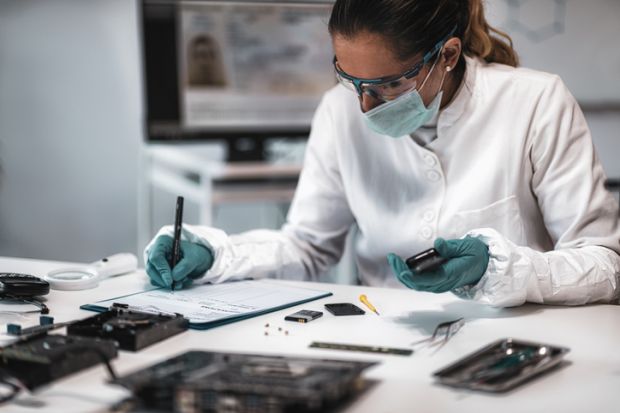Intervention by scientists appears all but certain to secure the release of an alleged mass murderer, after key Australian legal officers conceded “reasonable doubt” about her guilt.
Kathleen Folbigg, who has been dubbed “Australia’s worst female serial killer”, has spent 20 years behind bars for smothering her four infant children in the late 1990s.
Ms Folbigg exhausted all avenues of appeal despite doubts about a conviction based on incriminating entries in her diaries and the presumed improbability of four siblings succumbing to unidentified natural causes. A 2018 judicial inquiry, prompted by a petition offering new evidence in her defence, upheld her conviction.
But last year, the New South Wales (NSW) government ordered a fresh inquiry after another petition – signed by about 90 luminaries including Nobel laureates and a former chief scientist – sought a pardon based on new medical explanations for all four fatalities, including a recently discovered mutation in a gene long associated with cot death.
The second inquiry is being heard by former NSW chief justice Tom Bathurst. In a rare move, the Australian Academy of Science (AAS) was enlisted to provide independent technical advice, including which disciplinary experts should provide evidence and what questions they should be asked.
The counsel assisting the inquiry has now produced a 451-page submission concluding that there is a “reasonable doubt as to Ms Folbigg’s guilt”.
It says the genetics evidence credibly explains two of the deaths, undermining the premise of Ms Folbigg’s involvement in the other two. Reasonable doubt is also afforded by neurological, forensic and psychological evidence, with the diary entries found to be “within the ordinary range of behaviours” of a new and “loving” mother.
In a separate submission, the barrister representing the director of public prosecutions accepted the counsel’s key arguments. Ms Folbigg’s release now appears assured unless Mr Bathurst disagrees with his advisers and the prosecutor.
While it could be weeks before he publishes his judgment, Ms Folbigg could be released at any time if the state governor pardons her or the attorney-general orders her parole. Mr Bathurst can also refer her case to the Court of Criminal Appeal, where her conviction could be quashed.
The episode illustrates how a “science-sensitive legal system” could be brought into play when new discoveries raise doubts about criminal verdicts, according to AAS chief executive Anna-Maria Arabia.
“At the time of her trial, the human genome was just being sequenced,” Ms Arabia said. “Having the genomic sequence of children and families in a database that allowed us to…find an outlier mutation [and determine what it] might mean – that simply wasn’t available at the time.”
The academy is seeking a mechanism to facilitate the independent selection of experts in significant legal cases, particularly those involving complex or emerging science. It is also agitating for the establishment of a body to alert the legal system when new and complex science raises questions over cases where appeals processes have been exhausted.
“Science is moving at a rapid pace,” Ms Arabia said. “As new evidence comes to light, there needs to be a way to consider that. There is no doubt that there will be greater interest in this once the Kathleen Folbigg inquiry is finalised.”
Register to continue
Why register?
- Registration is free and only takes a moment
- Once registered, you can read 3 articles a month
- Sign up for our newsletter
Subscribe
Or subscribe for unlimited access to:
- Unlimited access to news, views, insights & reviews
- Digital editions
- Digital access to THE’s university and college rankings analysis
Already registered or a current subscriber? Login









